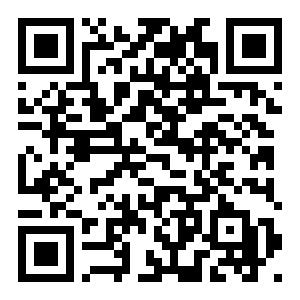Regulation on Computers Software Protection (2013 Revision)
中文Regulation on Computers Software Protection (2013 Revision)
(Promulgated by Order No. 339 of the State Council of the People's Republic of China on December 20, 2001; amended for the first time in accordance with the Decision of the State Council on Abolishing and Amending Some Administration Regulations on January 8, 2011; and amended for the second time in accordance with the Decision of the State Council on Amending the Regulations on Computers Software Protection on January 30, 2013)
Chapter I General Provisions
Article 1 These Regulations are formulated in accordance with the Copyright Law of the People's Republic of China, for the purposes of protecting the rights and interests of copyright owners of computer software, regulating the relationship of interests generated in the development, dissemination and use of computer software, encouraging the development and application of computer software, and promoting the development of software industry and the informatization of national economy.
Article 2 For the purposes of these Regulations, the term "computer software" (hereinafter referred to as "software") means computer programs and relevant documents.
Article 3 For the purposes of these Regulations, the following definitions apply:
(1) "computer program" means a coded instruction sequence which may be executed by devices with information processing capabilities such as computers, or a symbolic instruction sequence or symbolic statement sequence which may be automatically converted into a coded instruction sequence for the purpose of obtaining certain expected results; the source program and object program of a computer program shall be deemed as one and the same work;
(2) "documents" means literal descriptions or charts used to describe the content, structure, design, functional performance, historical development, test results and usage, such as program design instructions, flowcharts, and user's manuals;
(3) "software developer" means a legal entity or other organization that actually organizes, or directly carries out, the development of a piece of software and assumes responsibility for the accomplished software, or a natural person who independently completes, relying on his own conditions, the development of a piece of software and assumes responsibility therefor;
(4) "software copyright owner" means a natural person, legal entity or other organization that enjoys software copyright in accordance with these Regulations.
Article 4 The software protected under these Regulations must be developed independently by the developer and fixed on tangible medium.
Article 5 Chinese citizens, legal entities or other organizations enjoy, in accordance with these Regulations, copyright in the software which they have developed, whether published or not.
Foreigners or stateless persons having software first published within the territory of the People's Republic of China enjoy copyright in accordance with these Regulations.
Software copyright enjoyed by foreigners or stateless persons under an agreement concluded between China and the country to which they belong to or in which they have their habitual residences, or, under an international treaty acceded to by China, is protected in accordance with these Regulations.
Article 6 The protection of software copyright under these Regulations shall not extend to the ideas, processing, operating methods, mathematical concepts or the like used in software development.
Article 7 A software copyright owner may register with the software registration institution recognized by the copyright administration department of the State Council. A registration certificate issued by the software registration institution is a preliminary proof of the registered items.
Fees shall be paid for software registration. The charging standards for software registration shall be provided for by the copyright administration department of the State Council jointly with the competent department for pricing of the State Council.
Chapter II Software Copyright
Article 8 A software copyright owner shall enjoy the following rights:
(1) the right of divulgation, that is, the right to decide whether to make the software available to the public;
(2) the right of developer-ship, that is, the right to claim developer's identity and to have the developer's name mentioned in connection with the software;
(3) the right of alteration, that is, the right to supplement or abridge the software, or to change the sequence of instructions or statements;
(4) the right of reproduction, that is, the right to produce one or more copies of the software;
(5) the right of distribution, that is, the right to provide the original copy or reproductions of the software to the public by selling or donating;
(6) the right of rental, that is, the right to authorize others to use temporarily and onerously the original copy or reproductions of the software, except where the software itself is not the essential object of the rental;
(7) the right of communication through information network, that is, the right to make the software available to the public by wire or wireless means so that members of the public may have access to the software from a place and at a time individually chosen by them;
(8) the right of translation, that is, the right to converse the natural language of the software into another natural language; and
(9) other rights which shall be enjoyed by software copyright owners.
A software copyright owner may authorize others to exploit his copyright, and has a right to receive remuneration.
A software copyright owner may transfer, wholly or in part, his copyright, and has a right to receive remuneration.
Article 9 Except where otherwise provided in these Regulations, the copyright in a piece of software belongs to its developer.
The natural person, legal entity or other organization whose name is mentioned in connection with a piece of software shall, in the absence of proof to the contrary, will be its developer.
Article 10 ......

上海泽晟环境技术有限公司 绿咨力(上海)企业管理咨询事务所(有限合伙)
温馨提示:合规网支持主流浏览器(IE9及以上版本),不建议使用Safari


